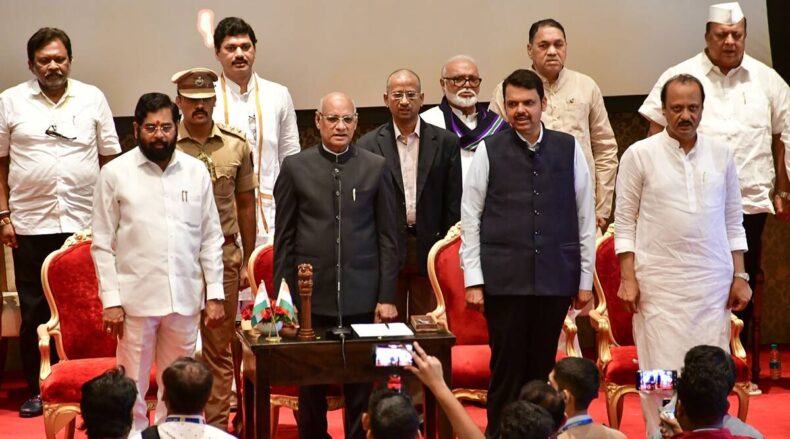Maharashtra, the second most populous state in India, has always held a significant position in national politics. With 48 Lok Sabha seats, winning Maharashtra is crucial for any political party aspiring to form the central government. The Bharatiya Janata Party (BJP) understands this importance all too well, as it currently enjoys a comfortable lead in national politics. However, recent political developments in Maharashtra have caused seismic shifts in the state’s political landscape, leaving the BJP in a position of uncertainty and anticipation.
Realignment and Ruptures
The split in the Nationalist Congress Party (NCP) on July 2nd triggered a realignment in Maharashtra’s politics.
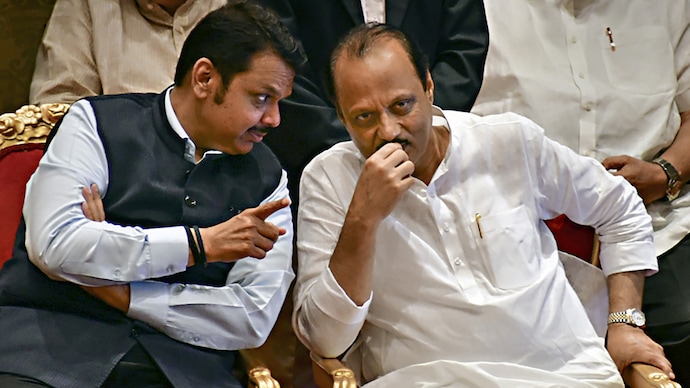
This realignment has positioned the BJP, the Shiv Sena, and the Ajit Pawar faction of the NCP against a depleted Maha Vikas Aghadi (MVA) comprising the Congress, the Shiv Sena, and the Sharad Pawar-led faction of the NCP. By causing significant ruptures in two of the opposition alliance’s major parties, the BJP now has a realistic chance to increase its tally in the upcoming Lok Sabha elections.
The BJP’s Strategy
For the BJP, maximizing its potential and winning as many seats as possible in Maharashtra is crucial. It aims to offset potential losses in other states and secure a comfortable majority of 300-plus seats in the Lok Sabha.
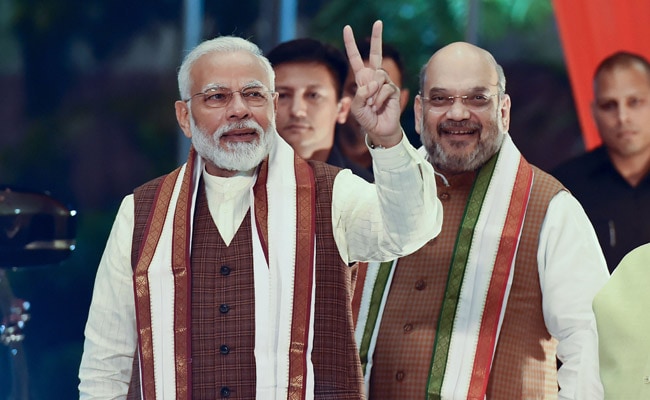
In the previous elections, the BJP won 23 seats, while its then-ally, the Shiv Sena, secured 18 constituencies. Together, they formed a formidable tally of 41 out of 48 seats, establishing dominance in the state. However, the current political landscape in Maharashtra poses new challenges.
The BJP’s Urgency
The urgency for the BJP to secure its position in Maharashtra can be attributed to the potential risk of losing a significant number of seats, which would make the party more vulnerable to the demands and pressures of its allies and the opposition. To mitigate this risk, the BJP leadership took in Ajit Pawar and his faction. This move aims to protect and nurture Maharashtra as a crucial stronghold for the BJP in national politics. The party realizes that relying solely on the Shiv Sena, led by Chief Minister Eknath Shinde, may not be sufficient for the upcoming Lok Sabha and Assembly elections.
Complex Dynamics and Seat-sharing Negotiations
With the current three-party dynamics in Maharashtra’s politics, the BJP will face challenges within its ranks.
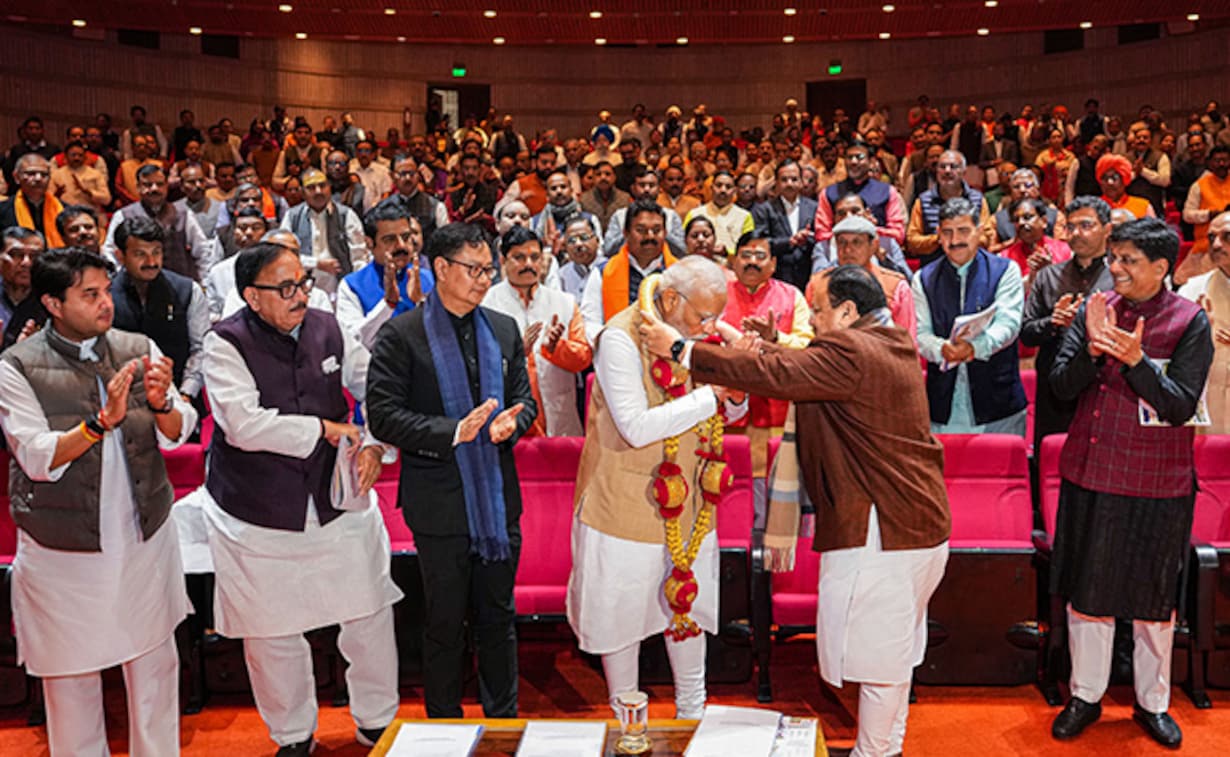
Dissent and murmurs of dissatisfaction among party members are emerging due to the inclusion of “outsiders” in the alliance. Some fear that these new members may claim a share of the electoral pie, leading to a complex seat-sharing negotiation next year. Balancing these internal dynamics while dealing with external challenges will be a test for the BJP’s leadership.
The NCP Battle
The outcome of the battle between Ajit Pawar and his uncle Sharad Pawar within the NCP will have a significant impact on the BJP’s prospects. The BJP hopes that Ajit will retain the NCP’s traditional vote base and bastions in west Maharashtra with ease. Ajit has been playing the victim card, gaining support and sympathy from NCP workers by highlighting how he has been wronged by his uncle. On the other hand, Sharad Pawar strategically avoids personal confrontation and focuses on targeting the BJP.
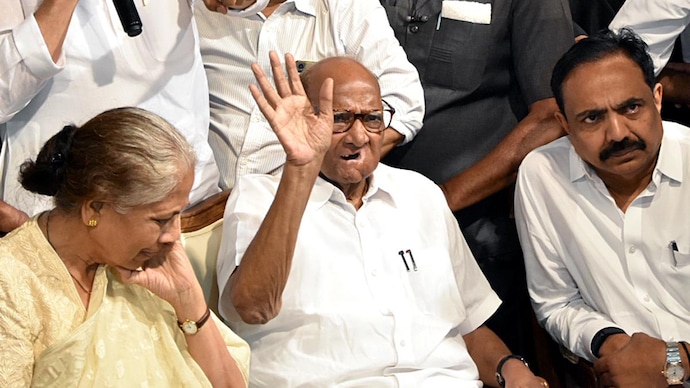
This battle not only holds relevance for Maharashtra politics but also has implications for national politics, as Sharad Pawar is known for his ability to rally like-minded parties against the BJP.
The political developments in Maharashtra have transformed the state’s political topography, and the aftershocks are yet to subside. Winning Maharashtra is a crucial factor for the BJP in maintaining its comfortable lead in national politics. However, the current realignment and ruptures within political parties have introduced uncertainties. The BJP’s inclusion of Ajit Pawar and his faction signifies its determination to secure its position in Maharashtra. As state politics enter a three-party phase, the dynamics will continue to shift, making the upcoming elections a challenging and complex affair. The outcomes will shape not only Maharashtra but also have wider implications for national politics.







